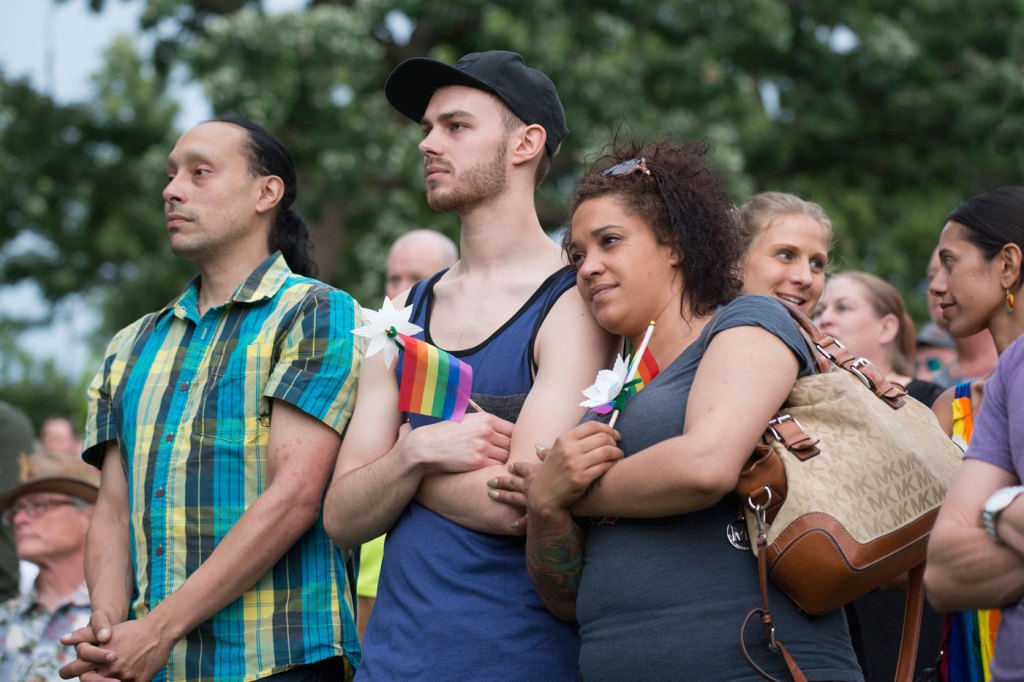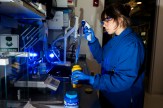Commentary: After Orlando shooting, ‘compassion’ conquers hate

In this guest post, Joseph Lagalla, E’17, student president of NU Pride, talks about the impact Sunday morning’s mass shooting has had on the LGBTQA+ community
Boston’s Pride Parade on Saturday was an example of the best of the LGBTQA+ community. I arrived on Boylston Street and was immediately greeted by a sense of belonging, seeing thousands of people ready to show their pride.
 We celebrated our solidarity and individuality, from the parade to the festivities that followed. It was especially exciting because Northeastern exhibited its biggest-ever showing at the parade thanks to a collaborative effort among the LGBTQA Resource Center, Northeastern Crossing, the Center for Community Engagement, and myriad student groups. The theme this year was intersectionality, and it was absolutely amazing.
We celebrated our solidarity and individuality, from the parade to the festivities that followed. It was especially exciting because Northeastern exhibited its biggest-ever showing at the parade thanks to a collaborative effort among the LGBTQA Resource Center, Northeastern Crossing, the Center for Community Engagement, and myriad student groups. The theme this year was intersectionality, and it was absolutely amazing.
But the next morning was in stark contrast to the day before. It started off with reports of rising numbers of injured and dead in Orlando. There had been a mass shooting in a popular gay club and most if not all of the victims were part of the LGBTQA+ community.
Local community leaders in Orlando are not looking at the shooting as a setback to progress toward equality. Instead they’re staying strong and taking the opportunity to form an even stronger community and highlight the need to end hatred.”
A number of people in America thought that the fight for gay rights was over as of June 26, 2015, when same-sex marriage became legal in the U.S. The tragedy that occurred on Sunday proved why that isn’t true.
Many gay men in Florida attempted to give blood only to find out that they couldn’t. Some news sources and politicians refused to acknowledge that the shooting happened in a gay club, the effect this attack has on the LGBTQA+ community, or that the victims were primarily Latinx. Instead they tried to focus on placing blame. The feeling of helplessness and diminishment was infuriating. The realization that the shooting could have so easily happened in Boston was terrifying.
The people who were affected shouldn’t have been marginalized by their sexual identity or their race. I was nearly overwhelmed as I read about some of the victims, like the couple who was killed and will now have a joint funeral or the victim who was a founding member of the gay/straight alliance at his former high school.
The feeling of helplessness and diminishment was infuriating. The realization that the shooting could have so easily happened in Boston was terrifying.”
In the immediate aftermath of the attack, it was easy to focus on the worst facets of the situation. But through all the hate, there was a lot of compassion and selflessness too. I found solace in seeing all of the support. The posts from my friends on Facebook. The photos of people waiting in line to donate blood or offer help. I started getting notifications that friends were “marked safe” in Orlando. It was a relief to see that people were coming together, especially within the community. The use of Fred Roger’s quote “looking for the helpers” makes it clear to see why we are proud.
Local community leaders in Orlando are not looking at the shooting as a setback to progress toward equality. Instead they’re staying strong and taking the opportunity to form an even stronger community and highlight the need to end hatred.
The day after the shooting, it was uplifting to read President Aoun’s statement highlighting the impacts on the community and the university’s commitment to further inclusion. Following that statement, a Northeastern group attended the vigil for Orlando’s victims at City Hall Plaza Monday night.
The members of NU Pride will continue to show their support for the victims and the members of the LGBTQA+ community.





